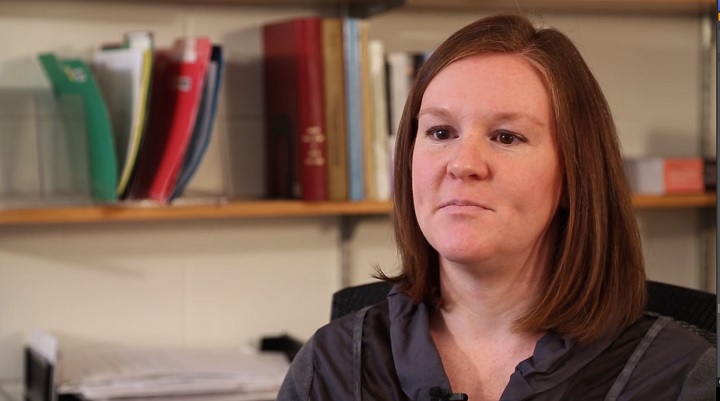When Emily Eaton set out on her latest project, covering research funding in the oil and gas sector, the associate professor didn’t expect to have the University of Regina, her own workplace, block her in finding crucial pieces of information central to the study.

She sits on a research council that’s been given a grant to look into what influence carbon extractive corporations in Western Canada have on education. So she set out to find out where research funding in the oil and gas sector comes from.
After Eaton was finished looking into grades K-12, she turned her sights to what role corporations were having in research around climate change, oil production, and carbon capture at the University of Regina.
“I first started asking locally within the research service’s department and they kept escalating me up the chain of command,” Eaton recalled.
She was then told she would need to submit a freedom of information (FOIP) request in order to source four things: the title of research grants, the funder of grants and contracts, the amount of funding, and the unit to receive the funding.
“I’m not asking for a description of the research project or access to the findings. I’m only asking for the most basic information, which is who is funding, and titles of research grants.”
- Posters promoting ‘Steal From Loblaws Day’ are circulating. How did we get here?
- Canadian food banks are on the brink: ‘This is not a sustainable situation’
- Video shows Ontario police sharing Trudeau’s location with protester, investigation launched
- Solar eclipse eye damage: More than 160 cases reported in Ontario, Quebec
“Nothing in that information can disclose for example, trade secrets, or things that need to be kept proprietary.”
Much to her surprise, the university carried out countermeasures to withhold two pieces of the requested information including the author of the funds, which she appealed to the privacy commissioner, who ruled in her favour.
The commissioner recommended the university turn over the information, which the university has responded to, saying it will not.
The court has rejected the university’s request for the hearing to be held behind closed doors. Now, the matter will head to the Court of Queen’s Bench for an appeal.
To fund her legal processes, Eaton relies on a Go Fund Me campaign. She’s spent over $8,000 thus far and expects that number to rise, noting, “it hasn’t even made it to the substantive hearing yet.”
As Eaton awaits the court date, she lives in a state of confusion over why these documents are being guarded.
“I am really perplexed,” she said. “I was just asking for these very minimal pieces of information.”
“As they’ve dug in overtime and submitted applications to ask the courts to hear it behind closed doors, and have confidentially submitted arguments, I’ve really begun to wonder what it is that they’re so keen on hiding.”
She said the fact that the university is a publicly funded organization, should mean the public should be privy to how research is funded.
“If you can’t even find out who is funding research and the title of the research grants, then you’re allowing the research to be done in secret.”
“I don’t think that’s a road that our public institutions should be travelling down.”
The current political and environmental climate stays top of mind for Eaton through her research, and the timing of this legal battle plays a key role in the study for her.
“Research at public institutions does shape the trajectory of technologies and policies.
“That basically means we can’t be producing fossil fuels anymore,” Eaton said. “We need to start thinking about plans for how to make that possible, and ensuring the communities that are reliant on fossil fuel production have alternatives and are included in the process.”
With nothing but time in front of her before her projected court date, she hopes for disclosed information and wonders what it will reveal.
“I’m very interested in what role the corporations are having in maybe, obstructing that process or fashioning the trajectory of research agendas and public policy.”
Eaton’s lawyer is requesting a court date in June or July, but they are expecting it to take place in the summer or early fall.
WATCH (May 3, 2019): Saskatchewan loses carbon tax court challenge



Comments